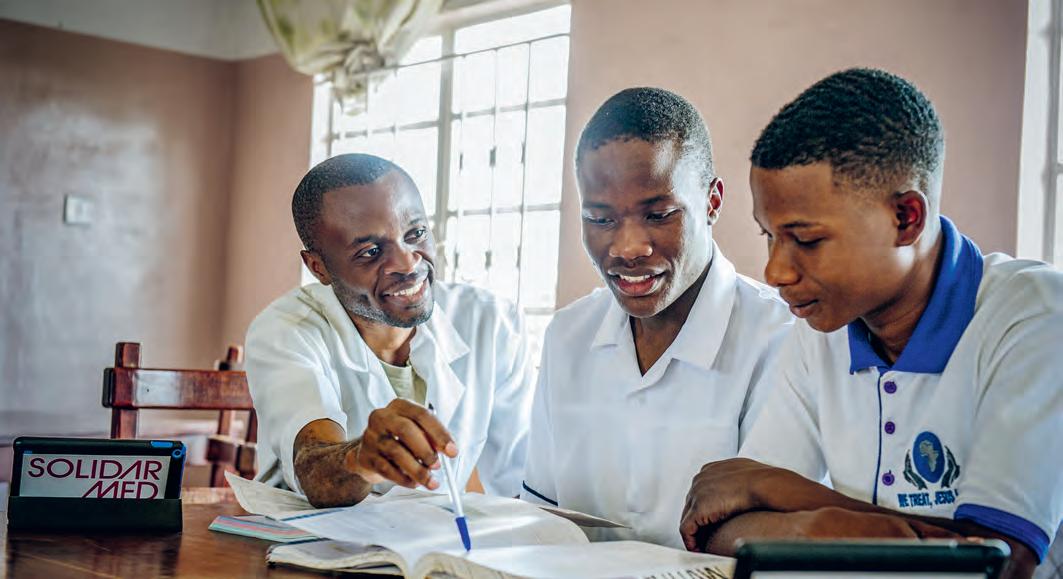
1 minute read
Training and further education of health staff
In addition to initial and further training for health professionals, SolidarMed invests in more attractive working and living conditions. Good medical care requires qualified staff – even in remote areas.
▲ The training course for nursing staff developed by SolidarMed was integrated into Zambia´s national nursing training programme in 2018. ob
Advertisement
In the spotlight Targeted training increases the number of health professionals in rural areas
Zambia The country suffers from an acute shortage of doctors and nurses, especially in rural health facilities. In response, SolidarMed is pursuing two complementary training initiatives. Firstly, SolidarMed has successfully developed training courses for midwives and nurses in rural areas. In 2018, the first 60 graduates of St. Luke’s School of Nursing and Midwifery successfully completed their training. 60 percent of these graduates now work in a rural health facility. Secondly, SolidarMed is a close partner of Chainama College of Health Sciences, the most important educational institution training Medical Licentiates. As a response to the shortage of doctors, Zambia trains non-physician clinicians in an in-depth four-year course. SolidarMed has helped to shape this training since 2009. In particular, SolidarMed has supported the clinical internships in the third and fourth year of training at accredited provincial hospitals. Modern learning methods via the Internet (so-called blended learning) and regular on-site supervision by clinical instructors guarantee a high quality of training. Since 2018, the approach co-developed by SolidarMed has been an official part of Zambia’s national training strategy for health professionals, the “National Human Resources for Health Strategic Plan”. ■






